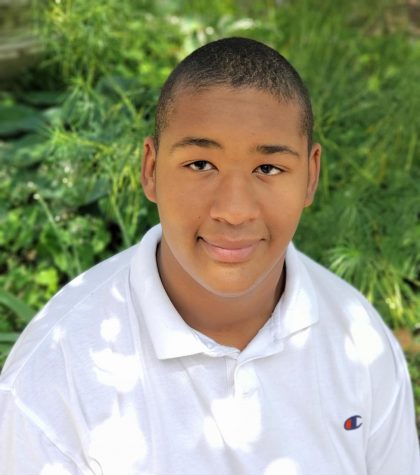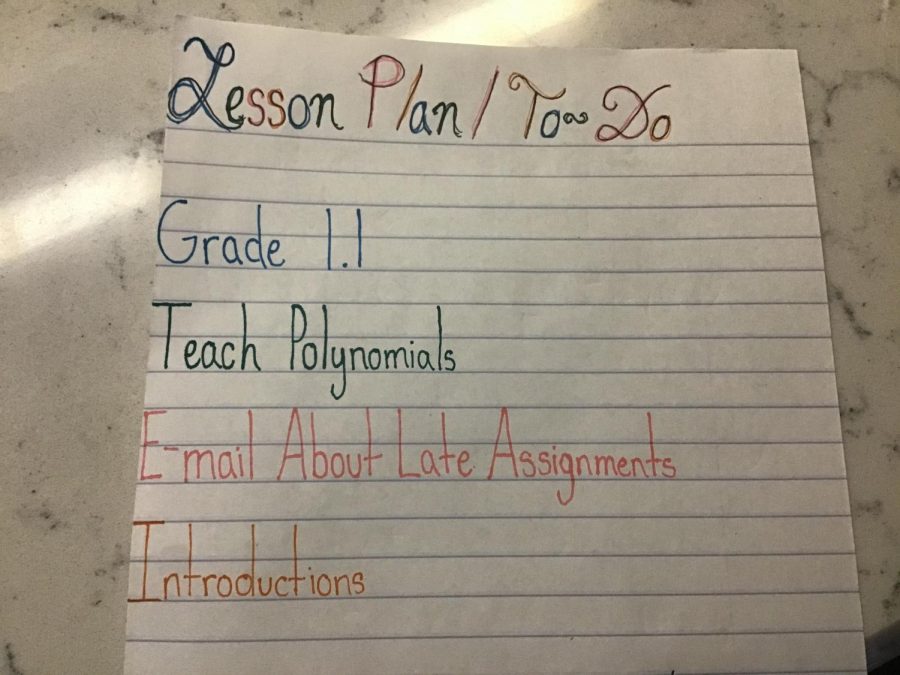Teachers flip learning to suit students
Photo by Adam Monnette
A teacher’s basic to-do list for the day, While teachers have their lists of things they need to accomplish for the day, they also have a lesson plan that has changed many times throughout the course of the summer.
Zoom lectures and FlipGrids and Nearpods; a whole new way of learning is mindboggling for students, but for teachers who were taught and are used to traditional classroom learning methods, everything they know is up for modification.
For Angelika Krawiec, math teacher, the new rules and situations made her change her mind multiple times over the summer about how to approach her teaching.
“I thought one week, ‘This is great. I’m going to do this [lesson plan], and then I changed it the next day,’” Krawiec said. “I read a lot of books. I asked my students to do a recording of what they liked, what they wished would have happened, and what do you suggest for the upcoming students [last semester]. I wrote them all down and made a goal sheet: ‘This is what I need to practice on.’”
Despite the unpredictability of the curriculum, teachers have adapted to try to make the classroom feel as close to normal as possible.
“I took some feedback from last year and changed my [teaching] philosophy already. I want to make [school] as normal as I possibly can,” Krawiec said. “I did that by flipping my classroom. Instead of teaching my notes, my students watch a 20-minute video of me going through my notes for homework. When I meet with you for 55 minutes, we are talking through problems. I am putting you into breakout rooms.”
While Krawiec is trying to have normalcy in her zoom classes, other teachers are also trying to maintain the normalcy of learning face-to-face. Anne Hopkins, biology teacher, also tries to make her students feel welcome when they enter her Zoom classes.
“I try to start every day by saying, ‘okay guys, what’s on your minds?’” Hopkins said. “‘What do we need to talk about?’ I don’t like diving into our notes right away. I want to build that sense of community with my students. [My] class should feel like a discussion.”
While Hopkins tries to start classes off normally by asking questions, Krawiec also tries to build relationships with her students by asking about their hobbies and stuff outside the classroom.
“I want to know stuff about you, not just what’s happening in the four corners of my classroom,” Krawiec says. “I want to know your hobbies, your extracurricular, I want to know all this stuff about my students.”
While Krawiec and Hopkins think that building relationships are important, they both also feel that one of the most important lessons that students can learn would be the ability to know when you need help, and how to reach out for it.
“I, as a teacher, have so much respect for students who ask a lot of questions,” Hopkins said. “It means that they really take pride and ownership in their learning. You are responsible for your grade, and you cannot really blame anyone but yourself. You have to take ownership of your learning.”

As a senior, this will be Adam's third year in the journalism program, and second year of being on staff, where he is taking on the role of the Live Media...

